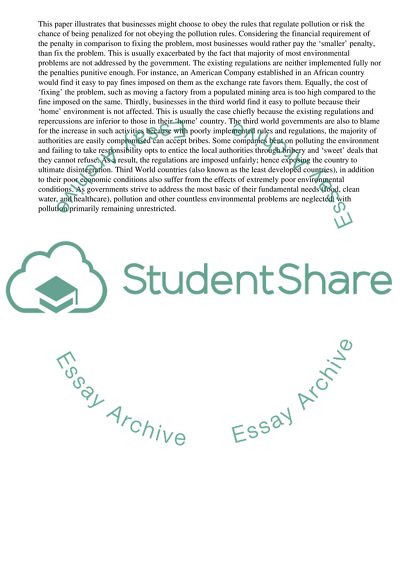Cite this document
(“Businesses Polluting In a Third World Country Essay”, n.d.)
Retrieved from https://studentshare.org/business/1476301-project-paper
Retrieved from https://studentshare.org/business/1476301-project-paper
(Businesses Polluting In a Third World Country Essay)
https://studentshare.org/business/1476301-project-paper.
https://studentshare.org/business/1476301-project-paper.
“Businesses Polluting In a Third World Country Essay”, n.d. https://studentshare.org/business/1476301-project-paper.


